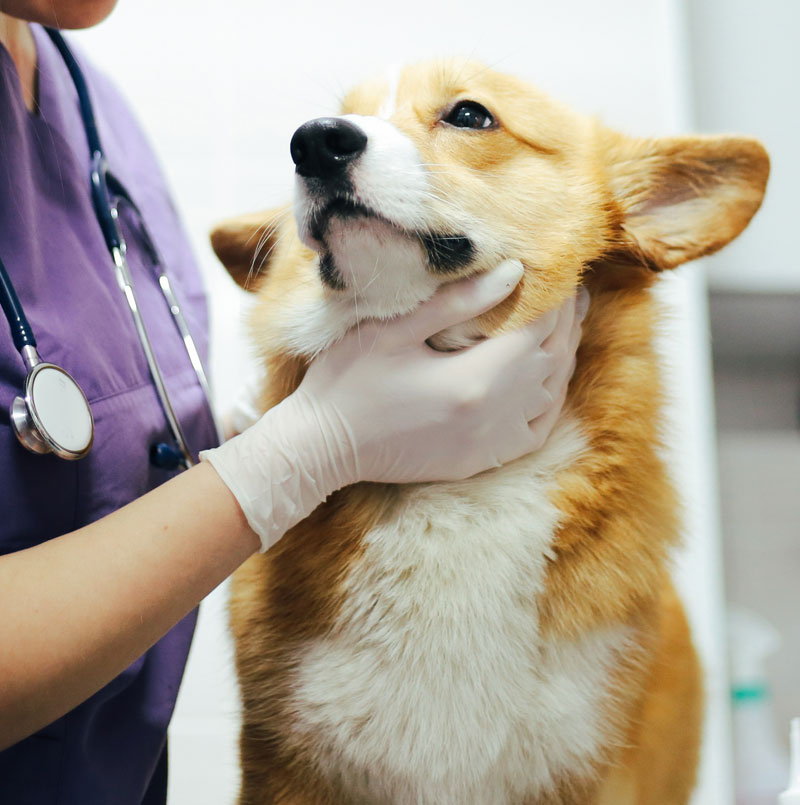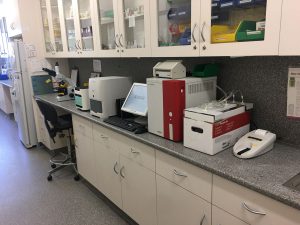In-House Laboratory
Our state-of-the-art in-house pathology equipment enables us to offer rapid, best practice, pathology testing. We can get the answers we need very quickly, often while you wait.
This capability means that you can often have the answers required to decide on the best course of action for your pet much faster than if we had to send samples to Melbourne or interstate (although there are some tests for which we do need to seek the expert opinions of external pathologists).
This is also very helpful when pets are booked for surgery as we test on the day to see if your pet has any pre-existing underlying risk factors before a general anaesthetic is given.
As well as our blood testing machines we also run tests on urine, faeces, and tissue samples.

Specific blood tests we run in-house:
This is a group of tests that let us examine in overview a large proportion of your pets’ organ systems. It also examines the cells in your pet’s blood telling us about things such as infection or anaemia.
This is to diagnose over or under active thyroids in your pet. Also, commonly to assess the response to treatment.
Used in our epileptic patients (yes there are a lot) to monitor treatment.
Just like the general profile above only with fewer tests more specifically targeted to anaesthetic risk reduction. Fewer tests also means less cost.
Tests for the likelihood of pancreatitis in either species.
Tests for Feline AIDS/FIV virus.
Tests for feline leukaemia.
Used to diagnose Heartworm and to check if it is safe for your pet to start Heartworm preventative medication.
Diagnoses parvovirus – particularly lethal for puppies.
Any one of you whose pet has had a sore ear will be familiar with this. After examining the ear, we put a swab down into the canal and collect some discharge which we then stain and examine under a microscope to ascertain the cause of any infection.
Used in patients with skin issues, samples are collected from the skin by “waxing” a small area with sticky tape and then staining and examining with a microscope.
A simple faecal test for a parasite that affects both humans and our pets.
A small amount of faeces is processed in the lab and then our vets look at the sample with a microscope to identify any parasites that may be present. Many of these parasites are zoonotic – they can infect humans as well.
You may have heard the team use the term FNA (stands for “fine needle aspirate”). This is where we suck a few cells out of a lump or a mass with a syringe and examine them under a microscope. We use this to identify lumps and bumps and to rule “nasties” in or out.

We're here for you and your pet
To book an appointment or if you have any questions – please do not hesitate to contact us.


